Bull symbolism is often connected with virility, power, and fortune. These masculine animals are held as sacred within a number of ancient cultures and loom large in the history of human agriculture. Whether as a source of food or a father from which new generations of cattle are born, the bull is the king of livestock animals. Read on to learn more about the spiritual meaning, mythology, and symbolism connected with the mighty bull.
Table of contents
Bull Symbolism and Meaning
The bull is the essential masculine figure. Often connected with male deities in ancient culture, the bull represents male fertility and potency above all else. Along with this, bulls are connected with energy, stamina, endurance, protection, and aggression.
Bull Symbolism: Strength
As an animal symbolizing strength, the bull is the subject of many ancient religions worshipped throughout the world. Bulls are associated with physical might and power, but also spiritual resolve and inner strength. Bulls may also represent the sacred.
From Celtic mythology to the zodiac sign of Taurus, the bull’s impact is felt in ancient history around the entire globe.
The Taurus Bull Meaning
The astrology of the Taurus bull is linked to the agriculture calendar signifying spring, a season of rebirth. Seen as a symbol of wealth and abundance, the bull was often sacrificed during ancient rituals by people hoping to secure the gods’ goodwill. The Taurus Bull is thought of as dependable, kind, and down-to-earth.
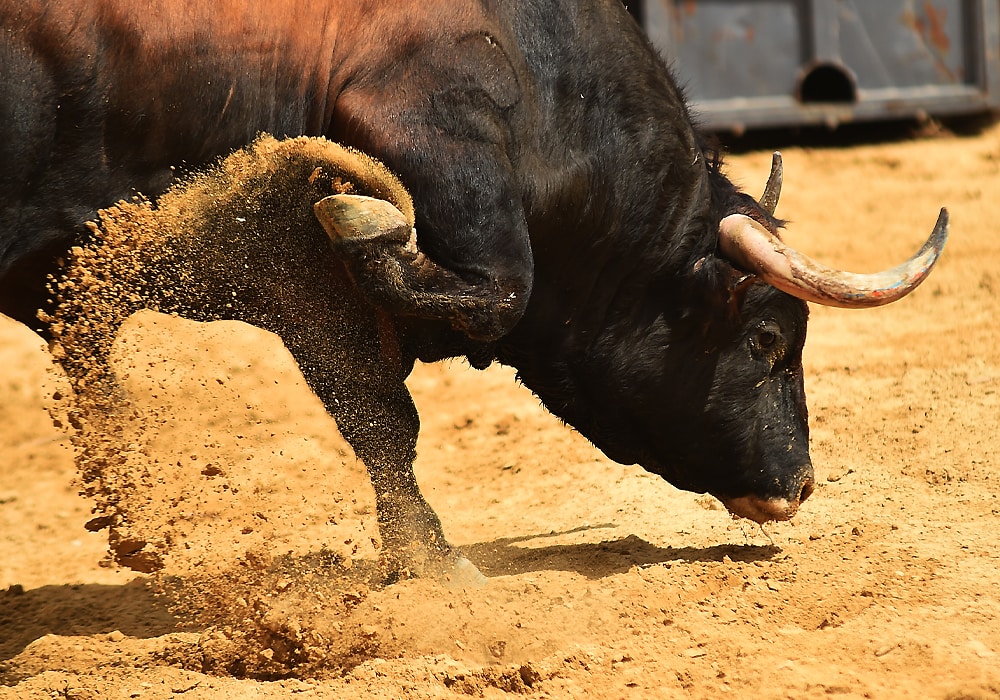
The bull also stands as a symbol of stubbornness, ferocity, tyranny, brutality. A stubborn person will sometimes be referred to as “bull-headed.” The expression “taking the bull by the horns” refers to tackling a tough situation head on and with confidence.
Many ancient symbols connect the horns of the bull with the sun. This motif is especially prevalent in ancient Egypt, however global religions often share the connection between bulls and heat, fire, or sunlight.
White Bull Symbolism
From the Bible to Irish mythology, white bulls often have a special significance that sets them apart from regular bulls. The white bull represents purity, power, pride, and sanctity.
Whether in literature, folklore, art, or symbolism, the bull has been an inspiration to mankind since long before the dawn of recorded history. This impressive animal has such a powerful impact on humans that its image has made its way into many world religions.
Bull Native American Symbolism
“Bull” traditionally refers to male cows, however this term is used to refer to a number of male mammals. Native American cultures did not have access to cows until the Age of Exploration brought colonists to the Americas with livestock. Instead, a different kind of bull plays a starring role in the mythology and traditions of many Native American tribes. This is the buffalo.
While bison may not be the first thing you picture upon hearing the word “bull,” these mammals are members of the bovine family and are similar to traditional cattle in many respects.
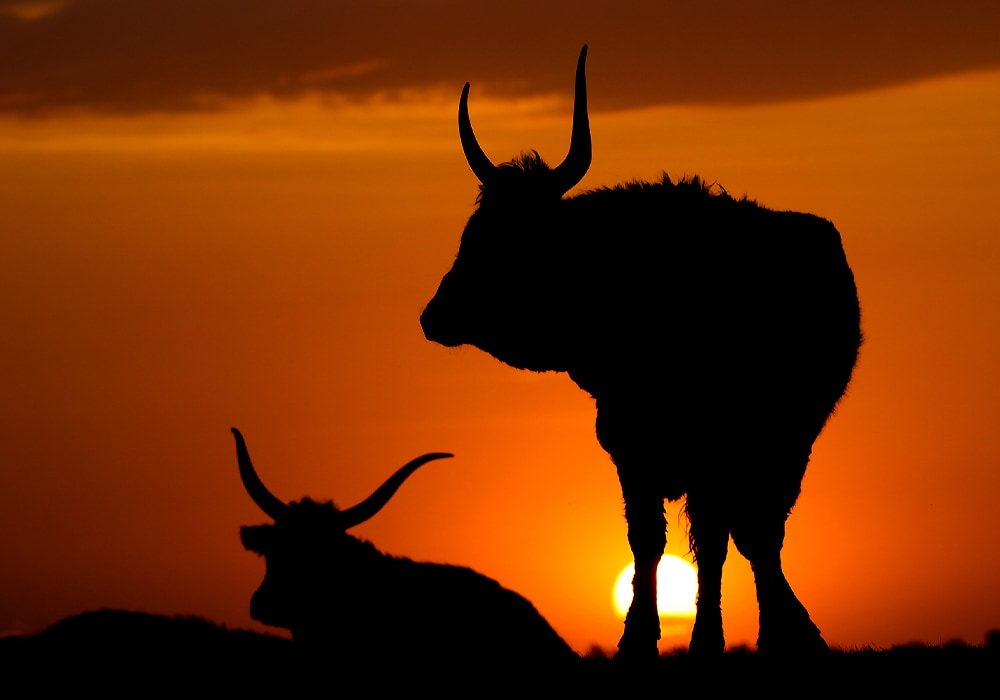
The famous chief who united the Sioux tribes was named “Sitting Bull.” This name refers to a male buffalo. (5)
For Native American cultures, especially those occupying the Great Plains region, buffalo are some of the most significant animals around. They were a major source of food for many tribes and there are dozens of myths describing various deities populating the earth with buffalo for men to eat, as well as many stories describing how heroes convinced the buffalo to consent to be eaten.
Many stories frame a hero’s journey around a buffalo hunt. In these stories, the buffalo often represents the need to respect one’s environment and be grateful to the earth for sharing her resources. All in all, the buffalo represents the sacred earth, the abundance of nature, and the strength and fortitude of a warrior.
Bull Eastern Symbolism
The ox is the second animal of the Chinese zodiac after being tricked by the rat, the ox lost the lead in the legendary zodiac race held by the Jade Emperor. The Chinese zodiac ox foretells a diligent hard working personality with a strong sense of duty and responsibility.
According to some Chinese stories, it is thanks to the ox that humans managed to persist. According to one legend, the ox watched humanity struggle through famine after famine and took pity on our species. One day, the ox stole magical seeds from the barn of the Jade Emperor and cast them down onto earth. Humans grew food from these seeds, but as punishment the ox was sent down from the heavens to labor in service to mankind.
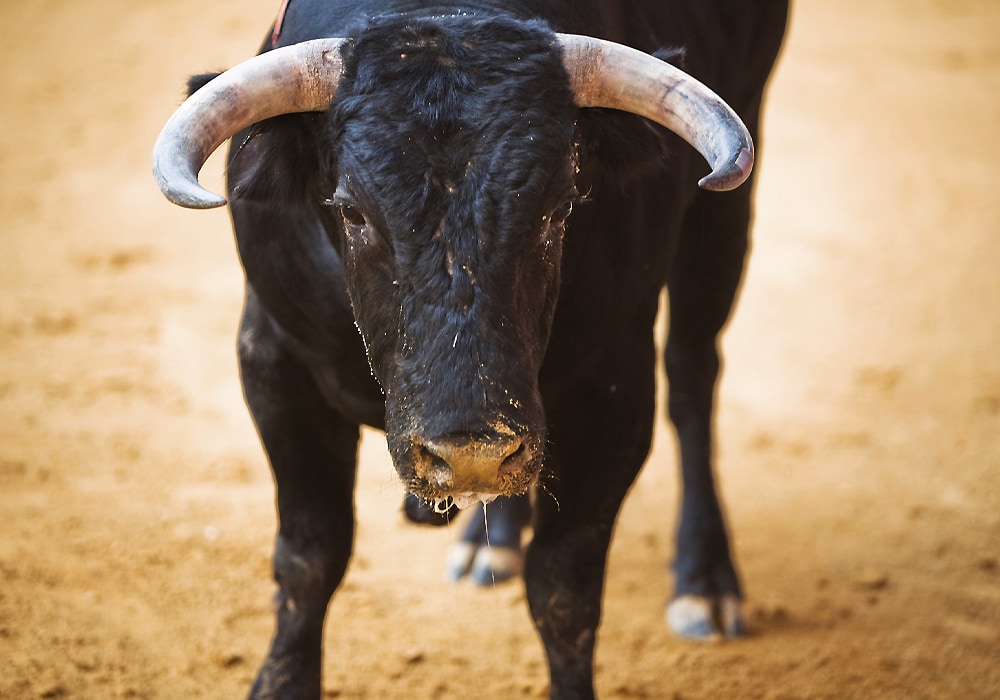
Another myth states that the Jade Emperor asked the ox to command humankind to “freshen up once and eat three times a day.” The ox got confused, though, and mistakenly delivered the wrong message. The ox told the humans to “freshen up three times and eat once a day” instead. Because this command was difficult to follow, the Jade Emperor sent the ox down to assist mankind.
Bull Christianity symbolism
The ox is an ancient Christian symbol for absolution and life through sacrifice. According to the four Gospels, the ox is one of the manifestations of Jesus Christ.
The Christian bull symbolism in Ezekiel’s vision is all about hard work, burdens, and ultimately, self-sacrifice. Later, the ox or bull was associated with one of the four evangelists, Luke the Evangelist, as his Gospel begins with a priestly sacrifice.
In Numbers 7:3, just one example of the ox as a sacrifice to God appears. There are many more instances in which the bull is considered sacred enough to offer as sacrifice.
“And they brought their offering before the LORD, six covered wagons, and twelve oxen; a wagon for two of the princes, and for each one an ox: and they brought them before the tabernacle.”
Deuteronomy 14:4-5 names the ox as one of the animals that are pure and clean enough for humans to eat.
“These [are] the beasts which ye shall eat: the ox, the sheep, and the goat, the hart, and the roebuck, and the fallow deer, and the wild goat, and the pygarg, and the wild ox, and the chamois.”
Isaiah 1:2-3 uses the ox to represent the loyalty that God’s followers owe to him. In this passage, the people of Israel are contrasted with the loyalty of the faithful ox.
“Hear, O heavens, and give ear, O earth: for the LORD hath spoken, I have nourished and brought up children, and they have rebelled against me. The ox knoweth his owner, and the ass his master’s crib: [but] Israel doth not know, my people doth not consider.”
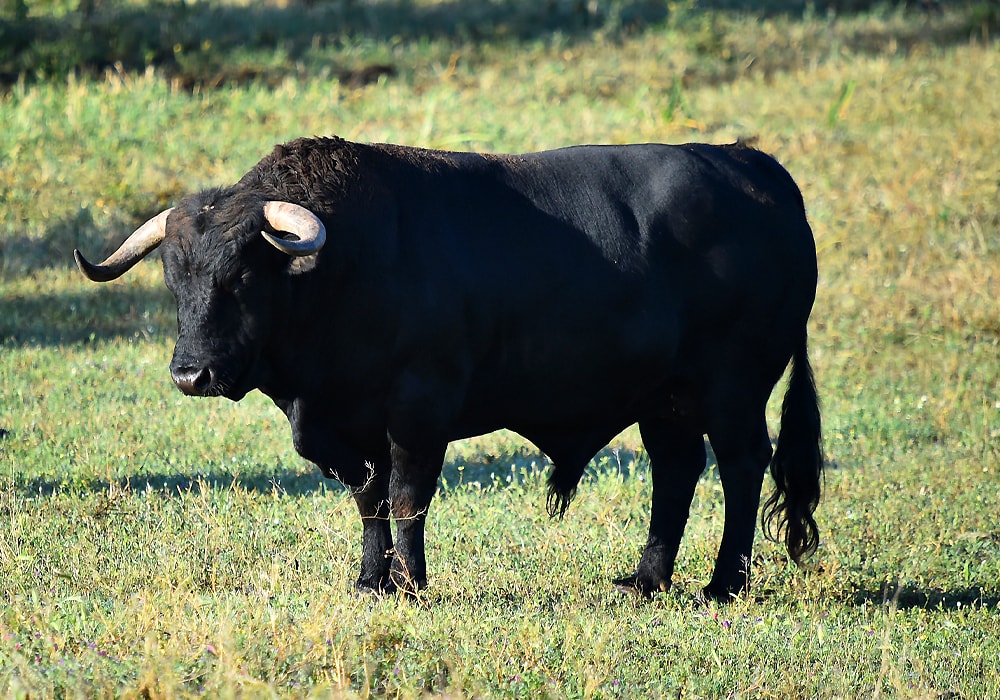
Thus, bull symbolism in the Bible usually refers to purity, hard work, faith, and sacrifice.
Bull Celtic Symbolism
The bull is one of the most significant figures in Celtic mythology dating back to ancient times. The Celts esteemed oxen for their virility and physical endurance. Much of the Celtic world saw the bull as a representation of solar energy.
The bull’s symbolic meaning is tied to fertility, wealth, status, ancestry, and kingship. Druids used to sacrifice white bulls during their prophetic rituals or gathered mistletoe from which they made a cure for infertility.
A Celtic clan was judged by the size of their herds, especially by the bulls’ strength. These were seen as a sign of luxury. Many early Celtic tales, such as the Tain Bo Cuailnge, begin as cattle raids, with one rival group coveting the prized bull of another.
This story culminates in an epic battle between a black bull and a white bull.
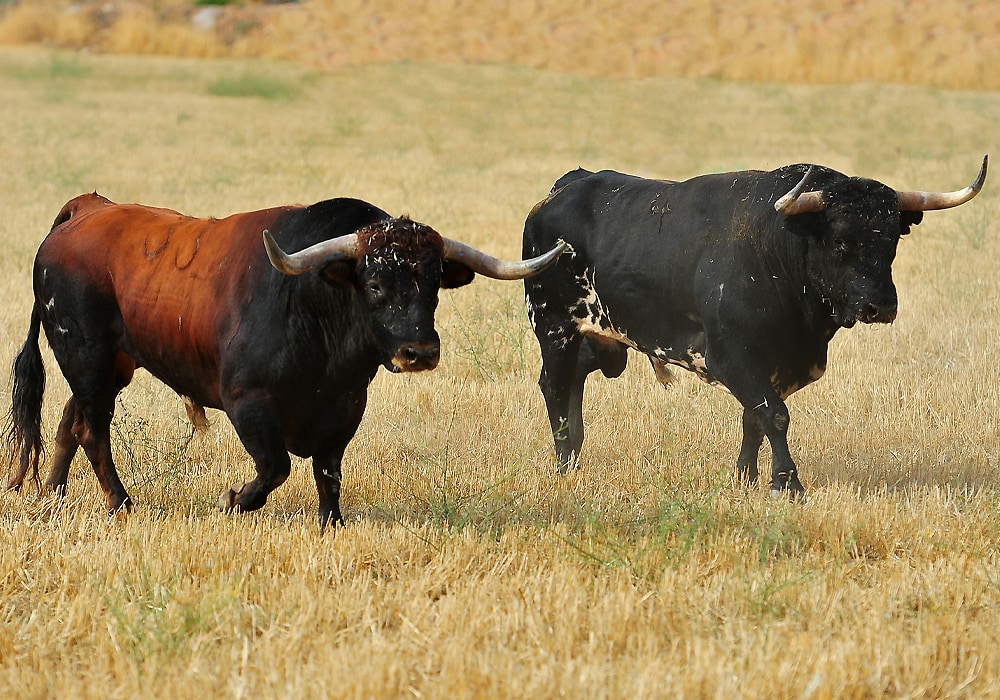
The god Donn is associated with a large black bull. This figure appears in many ancient tales and is often considered the father of Ireland and the all of Irish. Donn is sometimes referred to as the lord of the dead or god of the underworld. Some traditions, however, see him as the king of the supernatural realm of the fairy folk.
Bull African Symbolism
Like cultures worldwide, the bull symbolism throughout Africa is linked to wealth, power, and sustenance. The Zulu population from Southeastern Africa value cattle for their economic value and their spiritual meaning, with white bull symbolism being particularly important.
The Dinka population from Sudan, the largest ethnic tribe in Sudan, is famous for their pastoral traditions and takes cultural pride in cattle farming. Amongst the Dinka, tasks like milking cattle are reserved for women and children, so a boy’s coming of age occurs when he is no longer expected to perform this task.
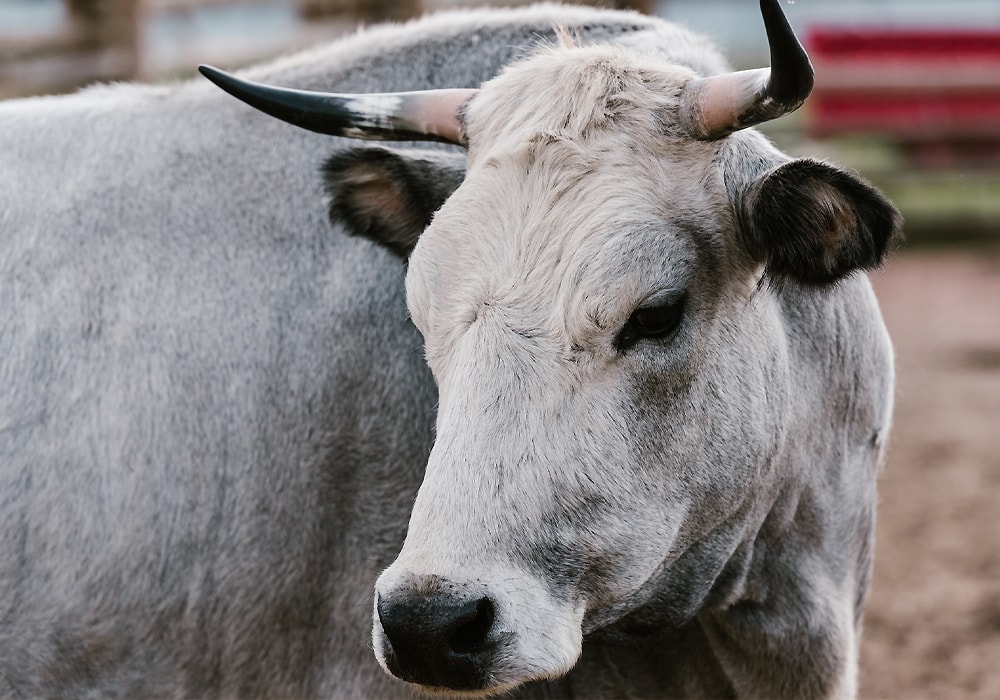
The Egyptian mythology and culture heavily features bull imagery.
The ancient Egyptians worshipped their deities, many of which were depicted in animal forms. Among the most critical animal cults was the bull cult. The main horned gods were Apis (son of Hathor), Buchis (deification of the life force), and Mnevis (a physical manifestation of Atum-Ra).The Apis bull was always connected to Egypt’s king and represented its most essential traits: vitality and strength. In the personification of gods, the bull was also a potent symbol of renewal. Connected with sovereignty and leadership, the bull was also often depicted alongside images of the sun.
Bulls in Dreams
Dreaming of a bull is often a call to awaken one’s competitive spirit and to stand one’s ground with unwavering confidence. Like the fearless bull, you must face your challenges head on and refuse to give way to anxiety or adversity.
Charging Bull Dream
Dreaming of a charging bull represents fear and indecision. If you’ve been charged by a bull in your dreams, consider whether there is a decision in your life which has been paralyzing you and preventing you from taking control.
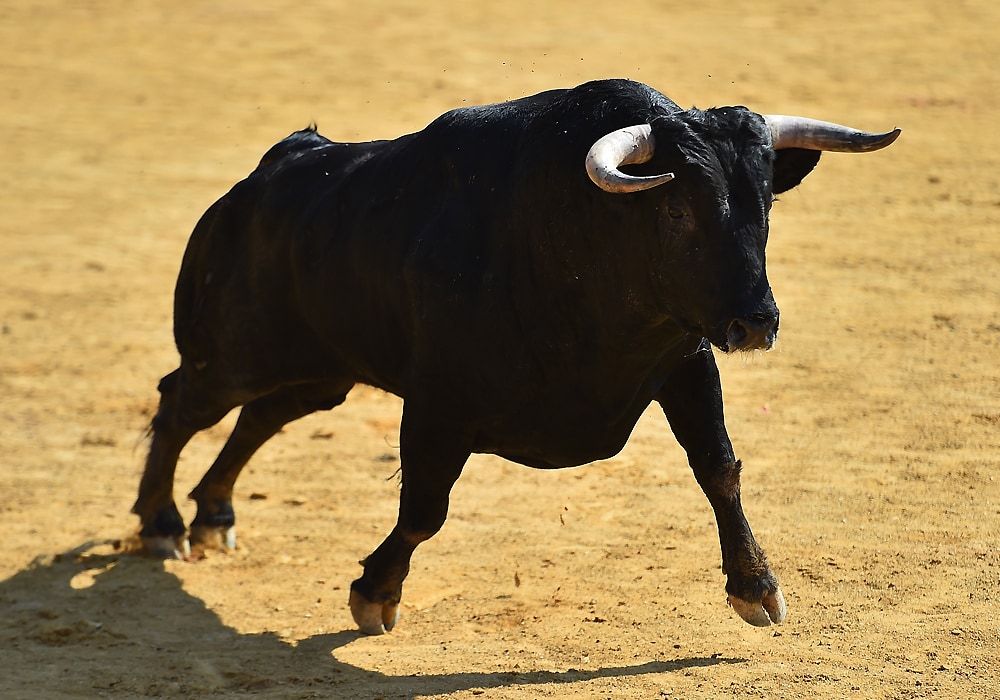
In some instances, a bull dream can refer to rage. Consider whether you’ve been letting things slide too much. Standing up for oneself is an important skill that will help you let go of your anger in the long run.
Bull Encounters and Omens
Encountering a bull can be a very moving experience as well as potentially somewhat frightening. The natural strength of the bull makes this animal an intimidating presence so it is wise to keep your distance.
A bull encounter can be a reminder to respect others and acknowledge their strength. Conversely, it may also remind you to acknowledge and take pride in your own strength.
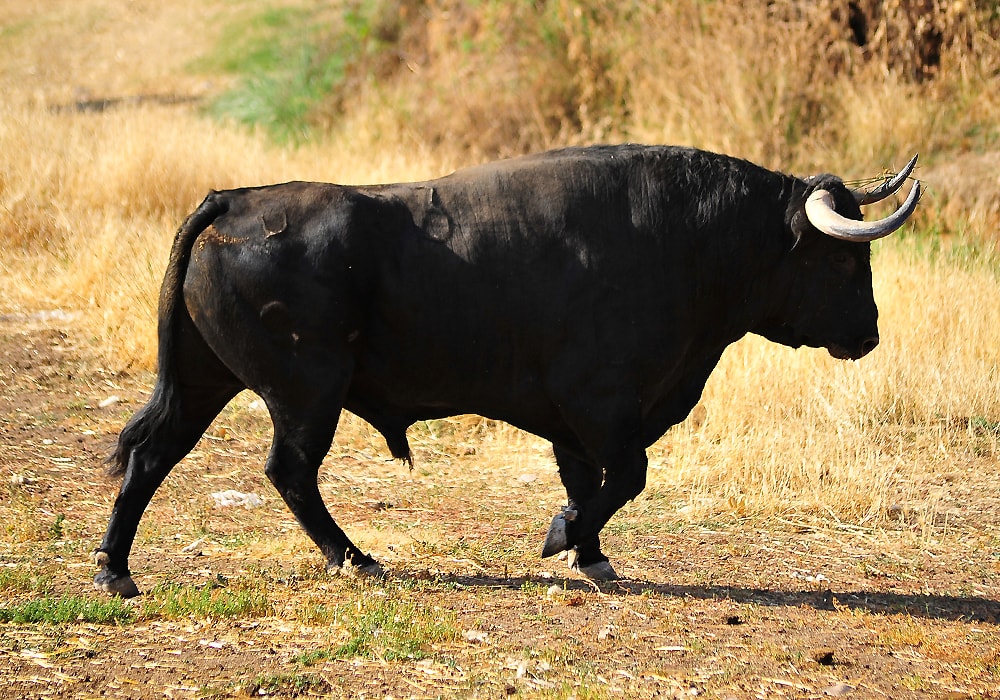
Encountering a bull might also remind one of the value of masculinity and certain masculine traits. Protection, virility, energy, and boldness all radiate from the exceptionally masculine bull.
Bull Mythology and Folklore
Bulls are common mythological characters around the world as evidenced by the cultures we’ve discussed thus far.
In some parts of the world like Nepal or India, cow slaughter is strictly forbidden. The cow is a sacred animal in Hinduism, Jainism, and Buddhism, and thus must never be intentionally killed or eaten.
A powerful symbol of motherhood, the cow, is celebrated during the Diwali festivities. The Muslims will allow the slaughter of cows but only after performing the ritual of Dhabihah.
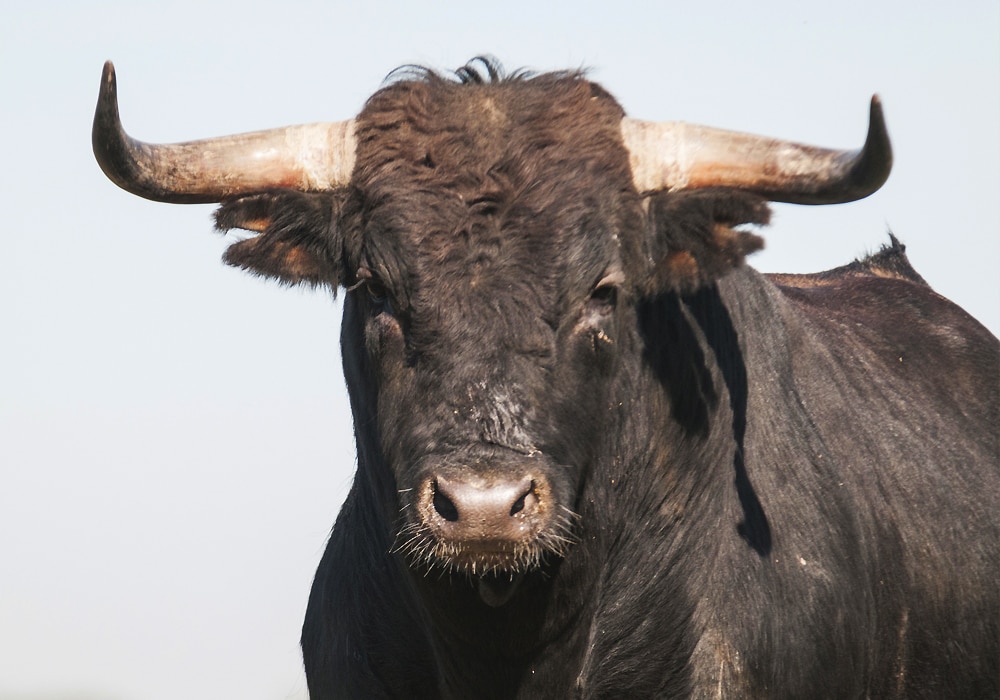
The cow is an important symbol in the Islamic world, and it even borrowed its name from the longest Quran chapter, Al-Baqarah (translated The Heifer).
In Greek mythology, the bull appears in many different stories. According to one story, the legendary King Minos of Crete was born when Zeus fell in love with a maiden named Europa. Desperate to claim Europa as his own, Zeus transformed into a white bull and abducted her.
King Minos himself would be the very same king who kept the bull-headed Minotaur in a labyrinth designed by the legendary architect Daedalus. According to this story, Minos’s wife produced the Minotaur after mating with a bull.
Bull Spirit Animal
If the bull is your spirit animal then you are most likely stubborn, hard working, fearless, competitive, and driven. The bull spirit animal is usually found in “Type A” personalities who work exceptionally hard in order to achieve their ambitions.
Though ambitious, the bull spirit animal is usually fairly grounded and pragmatic. Unlikely to pursue fanciful dreams of grandeur, people with this spirit animal will instead toil away to reach the height of their realistic goals.
The bull spirit animal tends to be competitive and possessive of its loved ones. People with this spirit animal can achieve great heights when spurred on by an intense rivalry, but their short fuse might also result in confrontations.
Bull Totem Animal
The bull totem animal is associated with prosperity, good luck, protection, and courage. People with this totem animal have no difficulty taking a leap of faith once in a while and are usually rewarded for doing so by the bull’s good fortune.
Another feature of the bull totem animal is independence. People with this totem animal are friendly and enjoy the company of others, but they rarely rely on their companions when it comes to getting the job done.
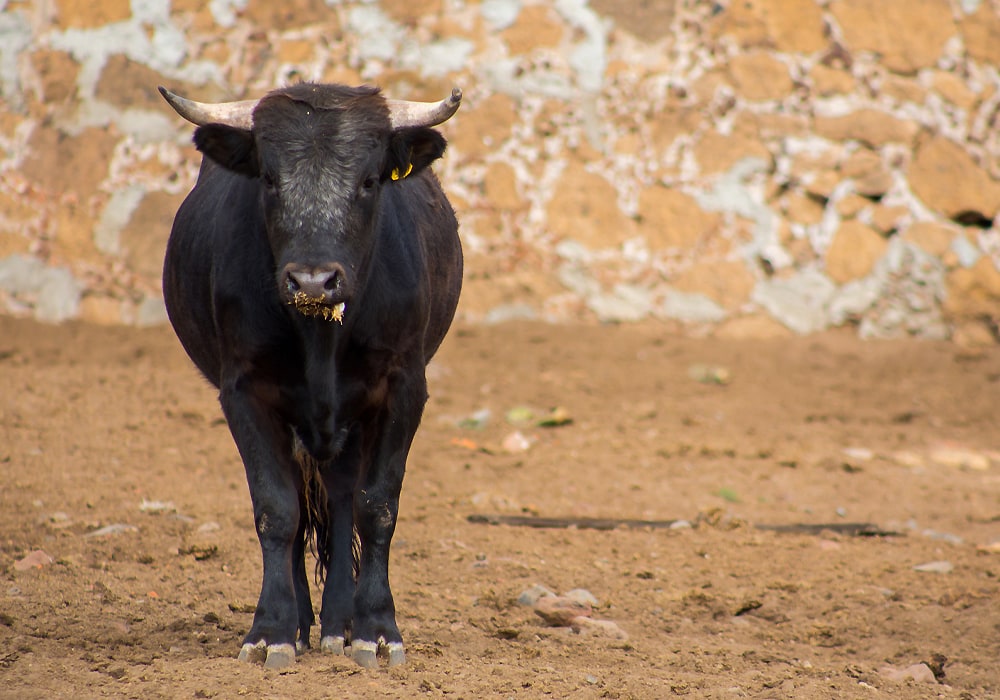
Self-reliance is just one symptom of the bullish stubbornness which makes this totem animal so tenacious and steadfast.
Bull Power Animal
The bull power animal is associated with potency, energy, and virility. For men especially, the bull’s power corresponds to fertility and strength. People with the bull as their power animal often seem to never run out of steam.
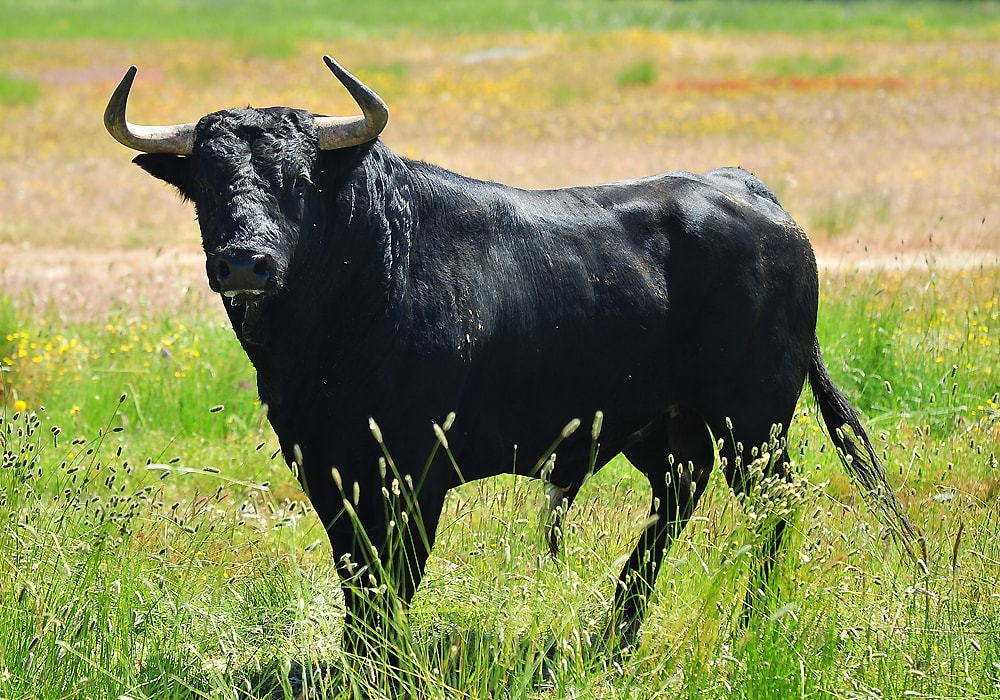
The power of the bull is also connected with endurance. In times of trouble, the bull power animal can be a powerful reminder to hold your ground and face danger with all of the bravery that you can muster. Call life’s bluff and you may just find that things aren’t quite as scary as they seem.
Bull Tattoo Meaning
Bull tattoo designs are prevalent among people with a strong fighting spirit. Due to their association with strength, masculinity, protection, or death, bulls have fascinated humankind since prehistoric times, so it is no surprise that even now they are often found decorating our skin.
Bull skull designs are common and may be chosen to represent mortality, courage in the face of death, or various spiritual forces.
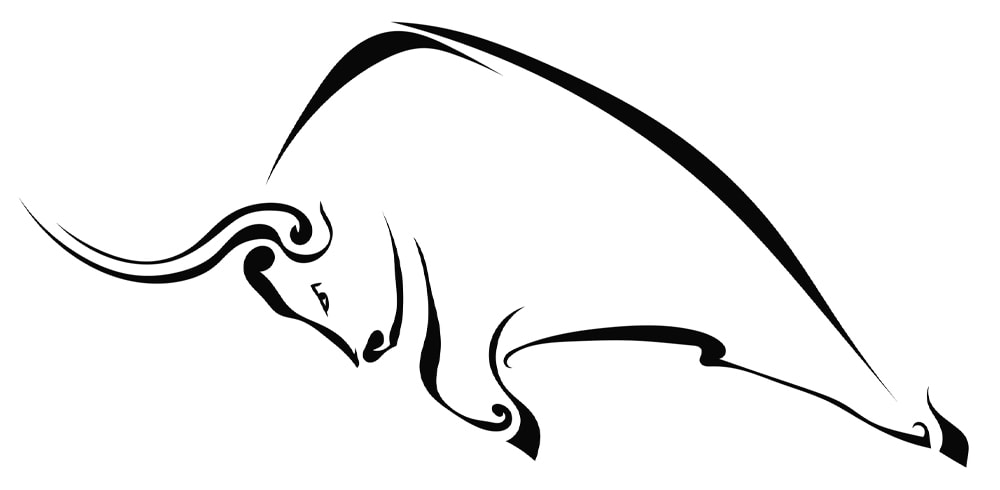
Many people with bull tattoos choose this animal due to its connection with the Greek zodiac. The Taurus bull is a common tattoo choice.
Further meanings for a bull tattoo include:
- Loyalty
- Courage
- Faith
- Masculinity
- Spiritual power
- Protection
- Sacrifice
- Resolve
- Energy
Conclusion
As a species, our relationship with bulls dates back many thousands of years and has obviously shaped the cultures of a number of our civilizations. With their strength, grit, endurance, energy, and fearlessness, it is no wonder that so many human societies have placed the bull in a sacred role or linked this animal with divinity and kingship.
Related

